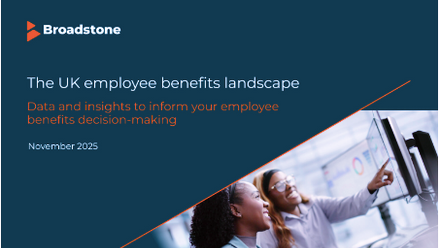The emotional horror of a mental health claim under income protection: a personal tale

I hope that sharing my personal experience will help others – especially insurers and brokers – to review their processes. I am not going to name the insurer in my case because they are not unique in their processes, and once I got past the daunting claim phase their support has been superb.
So what was so awful?
I was at the level where being able to get up each day was an achievement and seeing or speaking to anyone outside my closest support group was beyond what I could cope with.
But to start a claim, I had to phone a call centre to book in time for a claims adviser to call me. Even thinking of making that call had me in tears. Each day I would think “I’ll do it today”, then couldn’t. Over a week went by and I finally made the call at 10am on Thursday 20 December. The minute the call centre operator asked what my claim was in relation to, I went to pieces. But I hung in there and got a time slot booked.
I cannot imagine how many people suffering anxiety, depression or a myriad of other complex mental wellbeing or psychological traumas fall at this first hurdle and are unable to make this call.
Lesson Number 1: Do not tell a mental wellbeing claimant to make the first call.
I felt that there was no option other than to make this first call myself. My business partner would have been happy to have helped me, but was told by our broker that I needed to do it myself. If my partner was still alive, he no doubt would have insisted on helping me. Looking back now, I should have insisted on help but in that state of mind it didn’t occur to me.
My three takeaways on what can be done differently:
- Claiming isn’t an admin process it is an emotional mountain to climb. Brokers need more education on mental wellbeing claims so they can be more supportive. Personally, I like our insurance broker, and know him well enough given my work in the employee benefits industry. But I doubt he – nor many other brokers – see their role as getting personally involved in claims. This is definitely a gap in the process. In my view, at the very least the broker should be the one to inform the insurer of the broad outline of the claim and generate a claim number so if the claimant has to call they do not have to explain all over again what has happened.
- I am a director and employee of a micro-business, but in a larger business I imagine someone’s line manager or an HR person could help with this stage. Or it could be suggested that a family member or friend can help. Do not expect the claimant to think of these things on their own, they can barely think clearly as it is.
- The insurer could assist by offering an online system of booking or email exchange as well as a calling option, so claimants can choose whichever method suits them best.
My actual assessment call took place the following day. The woman who called was kind, supportive and very professional. If afterwards she had not sent me the notes from that call I would not be able to recall what I said, it was all a fog.
For me, this is the point at which a claimant with a mental wellbeing situation should get involved and be talked to directly. Not before, unless they wish to be.
Telephone calls may not suit everyone, but I can see that this is a vital step to start to assess what the claim is actually for and whether it should progress. Face-to-face may be better for others.
Lesson Number 2: Make the claims forms relevant to mental wellbeing
After Christmas a bulky A4 envelope hit my doormat. It contained the 7-page write up of my assessment call, an Occupational Questionnaire as well as a covering letter detailing a list of what else was required to progress my claim and several relevant advice brochures. All fair enough, but my goodness it was a lot to read through.
Needless to say that bulky pile of papers lay on my kitchen table opened but virtually untouched for nearly three weeks before I could muster my energy to look at them. When you are suffering a mental ailment your energy, concentration and memory are in very short supply if present at all. I was in a deep dark place with no room for reading insurance forms.
The form that really concerned me was the Occupational Questionnaire. It was a catch-all four-page form primarily focussed at people making long term physical illness claims. It had so many irrelevant questions that I emailed the insurer to double check that they had sent me the correct version. Turns out that this very large insurer only had one version of this form.
Questions on the form included:
- What are the usual physical duties of the job role? (eg lifting, carrying, fitting, walking, assembly, pushing, sweeping, gripping, driving, climbing, stacking).
- Specify the devices / tools used to perform the role, and the time and frequency of use?
- What are the essential physical demands of the job role? (sitting, standing, walking, gripping, keyboard activity, assembly, fitting, bending, crouching, repetitive tasks, climbing stairs, driving).
- What lifting/carrying is required in the role? At what heights is lifting performed?
- How much driving does the job require?
- Describe the environmental conditions in which you work (wet/dry, indoor/outdoor, uneven surfaces, work spaces, computer station, hazards, lighting, noise, temperature, home office, vehicle, power tools, heights, protection clothing)
There were no questions relevant to mental wellbeing. I dutifully answered what I could given these questions made up the bulk of the form but struggled to see how any of my answers would help in my assessment.
Personally, I’d suggest one of the following three alternatives to such a form:
- Have a form tailored for mental wellbeing claims.
- Have an online form that has a user journey sending claimants to relevant questions based on how they answered the previous question.
- Have the option of completing this stage via telephone with a trained person to help you. This may be very important for people who are not used to form filling.
Fortunately, as a professional journalist, I am articulate and have written on the topic of mental wellbeing for many years so was able to highlight (and draw connections between) the impact of my extreme bereavement on my cognitive abilities (and therefore my ability to do my job) in my covering letter and accompanying job description. Not everyone can do this, and especially when under mental duress. Trying to explain a state of mind is never easy, and it is not like having a physical ailment that people can see.
I do not begrudge insurers being thorough in the information they require, but I do believe there are aspects of the process which can be updated and improved.
What can employers do?
Employers may also find it helpful to review how they support their employees during the income protection claims process to ease the way. I’m sure the best practice employers already do. Or use those consultants and advisers who focus a part of their service on assisting with claims, rather than mostly broking insurances.
The good news:
My first income protection payment came through at the end of February and I was offered 12 workplace coaching sessions to both help phase me back to work and to help me stay there.
I have been slowly phasing back into work since late March and hope to be full time again by the summer. It is very up and down, with no one day or week like another so you need a trained professional to reassure, understand and support. For the first time in my life I am dealing with anxiety. I never knew what is was before, now I do. I am having to learn new ways of working and protecting my mental wellbeing. Many of these strategies should be practiced by everyone.
To balance my comments, that I’d like to state the obvious: having the financial support of income protection has taken a huge financial worry off my mind and the rehabilitation support that I have been given is invaluable. It’s just a few tweaks to the system that are needed.
- Debi O’Donovan, co-founder and director of REBA, will be in conversation about mental wellbeing with the popstar Will Young at the Employee Wellbeing Congress on 20 June 2019 in London. View more details on the Employee Wellbeing Congress 2019 website.






